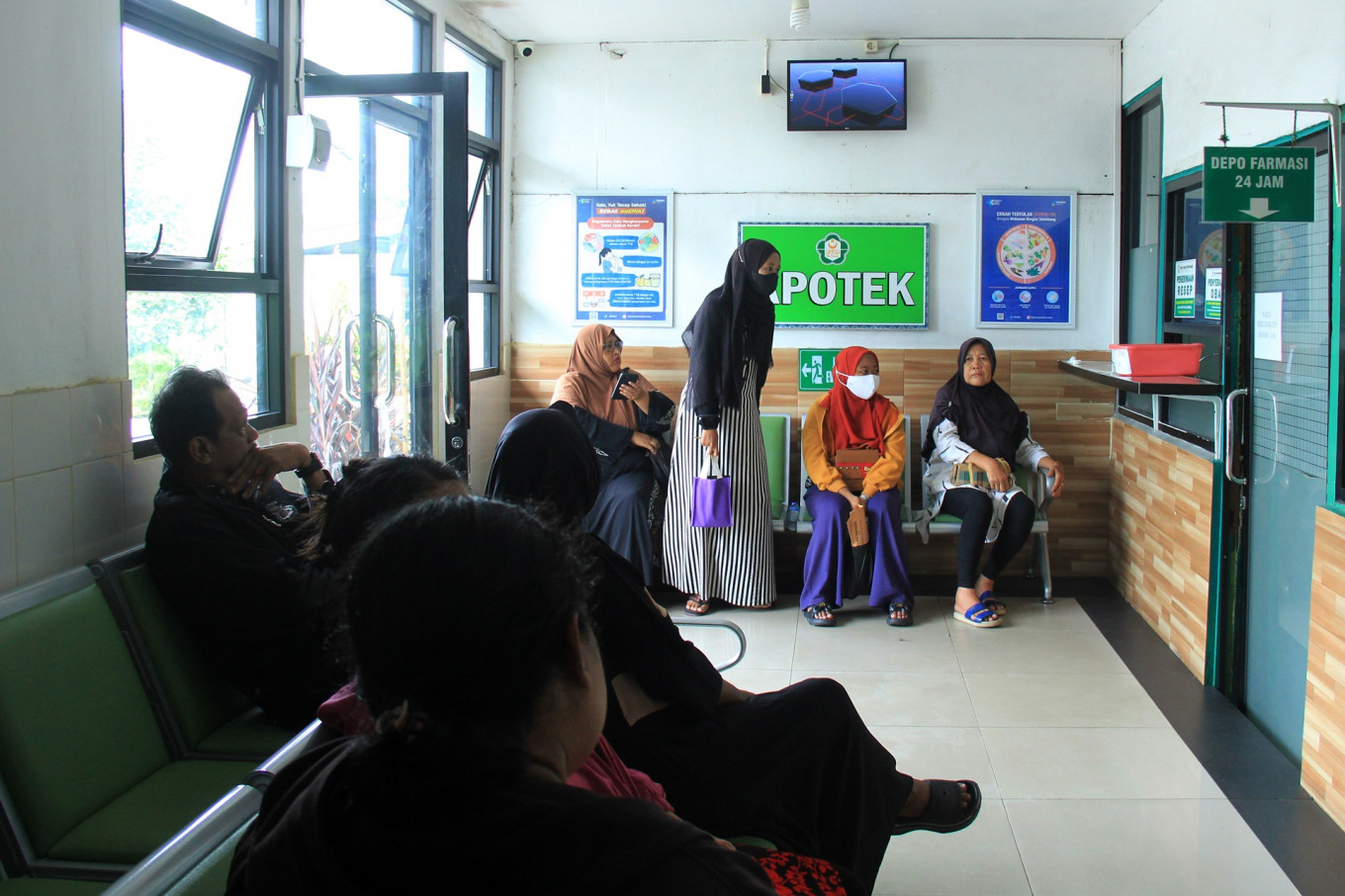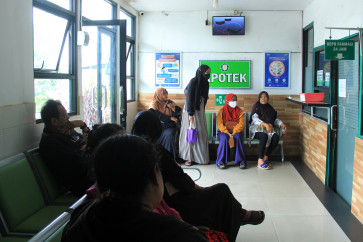Popular Reads
Top Results
Can't find what you're looking for?
View all search resultsPopular Reads
Top Results
Can't find what you're looking for?
View all search resultsImplementation of JKN standard inpatient class: Opportunities and challenges
The implementation of KRIS is expected to improve the quality of service for JKN patients, especially existing class 3 patients. However, this policy also raises several issues for future practice.
Change text size
Gift Premium Articles
to Anyone
T
he government on May 8 issued Presidential Regulation (Perpres) No. 59/2024 concerning the third amendment to Perpres No. 82/2018 on the National Health Insurance (JKN). One important point in the regulation concerns the implementation of Standard Inpatient Class (KRIS) facilities for hospitals collaborating with the Health Care and Social Security Agency (BPJS Kesehatan) for JKN patients. The regulation will be implemented no later than June 30, 2025. The implementation of KRIS is expected to improve the quality of service for JKN patients, especially existing class 3 patients. However, this policy also raises several issues for future practice.
Will the implementation of KRIS be followed by the implementation of a single contribution class tariff for JKN participants? How is the hospital readiness to implement KRIS, especially in adapting the 12 criteria for KRIS facilities and infrastructure? Furthermore, will the implementation of KRIS have an impact on reducing the allocation of beds for JKN patients considering that class 3 treatment rooms, which previously accommodated six to 10 beds in one room, will later only have four beds?
In our opinion, various speculative issues regarding the implementing KRIS arise because there are no detailed and clear technical instructions yet governing it. Article 46A of Perpres No. 59/2024 only states 12 criteria for treatment room facilities in inpatient services based on KRIS, which include, among other things, air ventilation, room lighting, bed equipment, division of treatment rooms based on gender, children or adults, infectious or non-infectious diseases, density of treatment rooms and quality of beds, bathrooms in inpatient rooms and oxygen outlets. In the same article it is stated that further provisions regarding the form of criteria and implementation of KRIS are to be regulated by a ministerial regulation.
We see that the issuance of Perpres No. 59/2024 has its positives, namely answering the uncertainty regarding the implementation of KRIS that has been around since 2021. The implementation of KRIS itself was actually previously scheduled in Government Regulation No. 47/2021, namely to start later than Jan. 1, 2023. However, in the end the plan was postponed and replaced with a KRIS pilot in 14 hospitals. With article 103B stating that the implementation of treatment room facilities in inpatient services based on KRIS should be finalized no later than June 30, 2025, hospitals still have time to adapt.
However, it is acknowledged that hospitals are at different stages of readiness for implementing KRIS. In general, hospitals require funds to renovate their inpatient rooms to meet the 12 criteria set for KRIS. The National Social Security Council said that based on the evaluation results of the KRIS trial, which had been carried out at four central general hospitals (RSUP), the need for funds to improve infrastructure to meet the 12 of KRIS criteria varied from Rp 312 million (US$19,543) to Rp 2.6 billion. The higher the hospital type, the greater the infrastructure repair costs. This problem of financing is mainly faced by private hospitals, while vertical hospitals and regional hospitals can be helped by the state budget (APBN) or regional budget (APBD) funding. But this renovation need can be an opportunity for bank financing.
We assess that the implementation of KRIS will provide opportunities for commercial insurance companies to play a bigger role in public health through coordination with BPJS Kesehatan as the main guarantor. This has been facilitated through the new Coordination of Benefits (CoB) scheme in Health Ministerial Regulation No. 3/2023. The CoB scheme allows users to combine the JKN with out-of-pocket (self-pay) payments and employer and/or private insurance to access better medical services than the initial entitlement obtained according to the class of JKN membership. This is because the implementation of KRIS itself will not eliminate the treatment class system in hospitals. Apart from that, through the new CoB scheme, we see that the implementation of KRIS might also have a positive impact on hospital incomes, especially hospitals with the middle- to upper-class market segments that have the potential to upgrade their inpatient services class to get better non-medical facilities. However, it comes back to how much exposure each hospital has to the share of JKN patients.



















